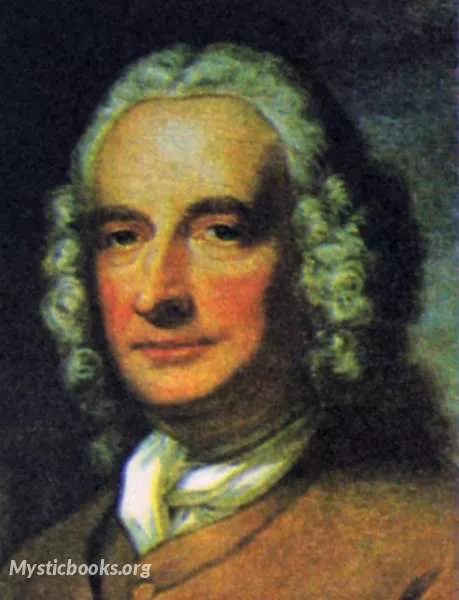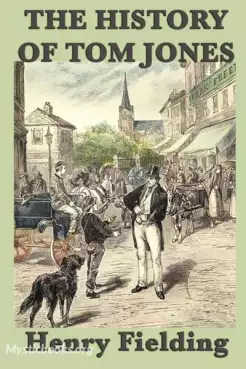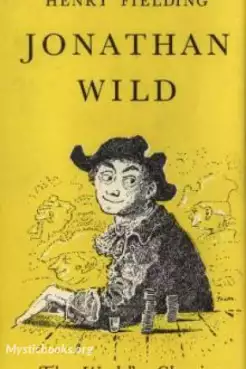
Timeline
Title
Country/Nationality
Henry Fielding
Henry Fielding was an English novelist and dramatist known for his earthy humour and satire. His comic novel Tom Jones is still widely appreciated. He and Samuel Richardson are seen as founders of the traditional English novel. He also holds a place in the history of law enforcement, having used his authority as a magistrate to found the Bow Street Runners, London's first intermittently funded, full-time police force.
Fielding was born at Sharpham, Somerset, and educated at Eton College, where he established a lifelong friendship with William Pitt the Elder. His mother died when he was 11. A suit for custody was brought by his grandmother against his charming but irresponsible father, Lt Gen. Edmund Fielding. The settlement placed Henry in his grandmother's care, although he continued to see his father in London. In 1725, Henry tried to abduct his cousin, Sarah Andrews, while she was on her way to church. He fled to avoid prosecution. In 1728, he travelled to Leiden to study classics and law at the university. However, lack of money obliged him to return to London and he began writing for the theatre. Some of his work was savagely critical of the government of Prime Minister Sir Robert Walpole.
Fielding married Charlotte Craddock in 1734 at the Church of St Mary in Charlcombe, Somerset. She died in 1744, and he later modelled the heroines of Tom Jones and of Amelia on her. They had five children; their only daughter Henrietta died at the age of 23, having already been "in deep decline" when she married a military engineer, James Gabriel Montresor, some months before. Three years after Charlotte's death, Fielding disregarded public opinion by marrying her former maid Mary Daniel, who was pregnant. Mary bore five children: three daughters who died young, and two sons, William and Allen.
In January 1752 Fielding started a fortnightly, The Covent-Garden Journal, which he published under the pseudonym "Sir Alexander Drawcansir, Knt., Censor of Great Britain" until November of that year. Here Fielding challenged the "armies of Grub Street" and periodical writers of the day in a conflict that became the Paper War of 1752–1753.
Fielding then published Examples of the Interposition of Providence in the Detection and Punishment of Murder (1752), a treatise rejecting deistic and materialistic visions of the world in favour of belief in God's presence and divine judgement, arguing that the murder rate was rising due to neglect of the Christian religion. In 1753 he wrote Proposals for Making an Effectual Provision for the Poor.
Fielding's humanitarian commitment to justice in the 1750s (for instance in support of Elizabeth Canning) coincided with rapid deterioration in his health. Gout, asthma and cirrhosis of the liver left him on crutches, and with other afflictions sent him to Portugal in 1754 to seek a cure, only to die two months later in Lisbon, reportedly in pain and mental distress. His tomb there is in the English Cemetery (Cemitério Inglês), now the graveyard of St. George's Church, Lisbon.
Books by Henry Fielding

Tom Jones
The History of Tom Jones, a Foundling, often known simply as Tom Jones, is a comic novel by English playwright and novelist Henry Fielding. It is a Bildungsroman and a picaresque novel. It was first published on 28 February 1749 in London and is amon...

The Life and Death of Jonathan Wild, the Great
The Life and Death of the Late Jonathan Wild, the Great is a satiric novel by Henry Fielding. It was published in 1743 in Fielding's Miscellanies, third volume. It is a satiric account of the life of London underworld boss Jonathan Wild (1682–1725)....

Joseph Andrews
Joseph Andrews, or The History of the Adventures of Joseph Andrews and of his Friend Mr. Abraham Adams, was the first full-length novel by the English author Henry Fielding to be published and among the early novels in the English language. Appearing...

A Journey from This World to the Next
The narrator dies in the first sentence. Through relating his travels in the afterlife, Henry Fielding, author of Tom Jones and Joseph Andrews, gently satirizes life here on earth.

The History of the Life of the Late Mr. Jonathan Wild the Great
The Life and Death of the Late Jonathan Wild, the Great is a satiric novel by Henry Fielding. It was published in 1743 in Fielding's Miscellanies, third volume. It is a satiric account of the life of London underworld boss Jonathan Wild. It is an exp...

Journal of a Voyage to Lisbon
Sailing voyage from England to Portugal in the mid Eighteenth Century, by one of the premier humorists, satirists, novelists and playwrights of his age. It was to be his last work, as his failing health proved unable to persevere much longer after th...

History of Tom Jones, A Foundling
Tom Jones is considered one of the first prose works describable as a novel. The novel is divided into 18 smaller books. Tom Jones is a foundling discovered on the property of a very kind, wealthy landowner, Squire Allworthy. Tom grows into a vigorou...

Old Debauchees
In Henry Fielding's witty and satirical novel, a cast of characters engage in a complex web of deception and manipulation, using religion as a tool to achieve their own selfish desires. Amidst the chaos, the clever Isabel outsmarts her pursuer, expos...

Apology for the Life of Mrs. Shamela Andrews
Shamela is a satirical novel that tells the story of a young woman named Shamela Andrews. Shamela is a servant girl who uses her wiles to seduce her master, Mr. Booby, into marrying her. The novel is written in the form of letters, and it exposes the...

Amelia (Vol. 1)
Amelia, a young woman from a wealthy family, defies her mother's wishes to marry William Booth, a poor army officer. The couple moves to London, where they are faced with the challenges of married life. Amelia soon discovers that her husband is not t...

Enquiry Into The Causes Of The Late Increase Of Robbers
In 'Enquiry Into The Causes Of The Late Increase Of Robbers,' Henry Fielding, a magistrate and celebrated writer, addresses the rampant crime plaguing eighteenth-century England. He argues that corruption within the legal system, particularly the cor...

Life and Death of Tom Thumb the Great
Henry Fielding's *Life and Death of Tom Thumb the Great* is a satirical play that mocks heroic biographies and the societal norms of the time. The play follows the exploits of Tom Thumb, a diminutive hero with a larger-than-life personality, as he na...

Author's Farce
Author's Farce is a meta-theatrical play by Henry Fielding that satirizes the struggles of playwrights in 18th-century London. The play follows Luckless, a struggling author, who attempts to write and produce a successful play. The play within the pl...

Amelia (Vol. 3)
Amelia is a novel by Henry Fielding, first published in 1751. It is the third and final installment in Fielding's trilogy of novels, following Joseph Andrews and Tom Jones. Amelia tells the story of the titular character, a young woman who is forced...

Don Quixote in England
Don Quixote in England is a satirical novel by Henry Fielding, first published in 1734. The novel follows the adventures of Don Quixote and Sancho Panza as they travel through England. Along the way, they encounter a variety of characters, including...